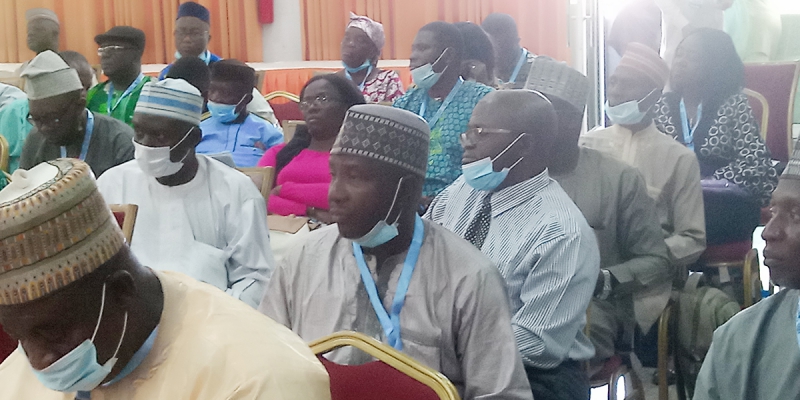The 27th Regular Meeting of the National Council on Water Resources themed “Managing Water Resources in Crisis: The Nigerian Experience” which started on Monday 30th November, 2020 came to a successful close on Friday 4th December, 2020. Many people attend despite the COVID 19 Pandemic. The Council was an assemblage of policy makers, technical experts, development partners and the African Water Association (AfWA) – Nigerian Water Supply Association (NWSA) Focal Person for Nigeria.
The objective of the meeting was to provide solutions to the challenges facing the water, sanitation and hygiene (WASH) sector, address the climate change factor and solicit higher engagement of sector stakeholders. The council meeting focused on addressing the water challenges faced by the Nigerian Water Sector from pre and post COVID 19 Pandemic and the impact of Climate Change on Integrated Water Resources Management.
The council opened with the plenary technical session where critical issues from the previous council meeting were raised on the review of adopted action memos. It was noted that though COVID-19 has come with a lot of challenges, it has nevertheless engendered professionalism and a collaborative spirit in sector-wide response in combating common problems and driving coordination between companies, where possible.
The meeting emphasized the importance of safely managed WASH services for prevention and protection of human health during infectious disease outbreaks including the current COVID-19 pandemic. Emphasis was laid on investing in core public health infrastructure, including water and sanitation systems. This was also considered critical during the recovery phase of a disease outbreak to mitigate secondary impacts on community livelihoods and wellbeing.
The AfWA-NWSA Focal person highlighted the challenges that face the sanitation sector drawing from his valued experience garnered from working with AfWA in Nigeria. While making contribution to the need for harmonization and control of urban sanitation activities, he observed that one of the reasons why sanitation, particularly faecal sludge management, has been so much neglected is that it often lacks institutional, household and good governance. He noted that AfWA preliminary effort at identifying critical sanitation operators in states reveals that roles are not properly streamlined as various states have various arrangements, while some have no defined arrangement.
The forum offered the AfWA-NWSA Focal Person the occasion to inform the Council during the Technical plenary, and the Committee of Managing Directors of Water Agencies in a specially scheduled meeting with NWSA, that AfWA has earmarked six municipalities in six states viz; Enugu, Lagos, Delta, FCT, Ogun and Niger states in Nigeria to benefit from the Citywide Inclusive Sanitation (CWIS) and two states Utilities; FCT Water Board and Taraba State Water and Sanitation Corporation to benefit from the Water Quality Improvement Programme. Water Agencies and operators therefore used that opportunity to make enquiries on strategies to enhance performance and strengthen relationship with AfWA.
Despite the effort of AfWA to strengthen collaboration with member Utilities of the Nigerian Water Supply Association to improve their performance it was noted that a very small number of utilities registered. It therefore urged the Council to give support to Utilities in Nigeria to enable them register with AfWA to benefit from its robust capacity building and peer-to-peer programme and to encourage states’ cooperation on same. That was part of the strategic effort at enhancing utility registration and overcoming the bureaucratic bottlenecks in securing yearly approvals.
Rev. (Engr.) Francis UMEMEZIA
(AfWA-NWSA Focal Person)

 English
English  Français
Français 
